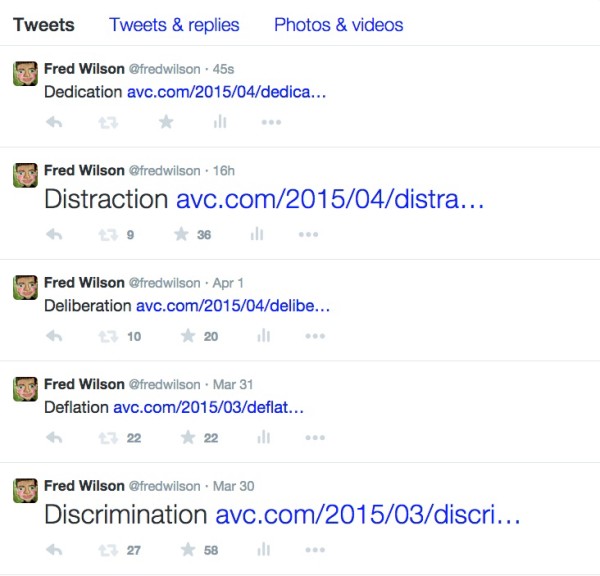The other day I found myself on a VC website. I went to the portfolio page, looked at all of their investments and from that inferred what that firm’s investment strategy was by sector, stage & geography.
This is not a simple thing to do, but it can be done. It helps that I’ve been working in the VC sector a long time and understand a fair bit about VC firms and how they invest. But honestly anyone can do this if they spend enough time distilling the key facts about each and every investment and then looking at these facts across the entire portfolio across time.
Venture capital firms don’t do a great job on their websites of explaining what they invest in and what they do not invest in. Some of that is most VC websites aren’t particularly great to begin with. Some of that is investment strategies change and evolve over time. Some of that is VC firms tell themselves they do one thing but actually do another.
This is frustrating for entrepreneurs. They send me an email thinking their investment is a perfect fit for USV and then they quickly get an email back from me saying “this is not a fit for USV”. It drives them crazy.
The very best way to know what VC firms invest in is to look at what they have invested in, particularly recently (the past few years).
So an automated tool that crawls VC websites, pulls the links to each and every portfolio company, categorizes these investments by stage, sector, geography, and ideally a host of other things, would be incredibly useful.
There are a few things that will be tricky about doing this. Figuring out when the VC made the initial investment is one of them. You look at Etsy on the USV portfolio page and you might think “USV invests in late stage marketplace businesses” but the fact is that we made that investment in early 2006 when Etsy was less than a year old. The correct determination would be “USV invests in seed stage marketplaces that have launched and are getting good traction.” A good way to solve this issue is to also crawl other websites, like Crunchbase, where you can triangulate to figure out when the initial investment was made.
It is also important to look at the data across time to see how the VC firm’s strategy is evolving. Starting in 2010, USV raised an Opportunity Fund and we will now occasionally make late stage/growth stage investments. We don’t do it very often, but we do it. Picking that up will be tricky unless you time sequence the data.
If such a tool existed, then an entrepreneur could point the tool at his/her website, generate some data about stage, geography, and sector, and then generate a list of VC firms that are good targets. The list could also generate a list of firms that have made competitive investments and should be avoided.
I honestly don’t think this would be that hard to build. And I think entrepreneurs who are going out to raise capital would find it incredibly valuable. There isn’t a huge market for such a product, but there is a market. The PWC Money Tree report says that 4,356 startup investments were made in 2014. So I imagine that somewhere between 5,000 and 10,000 entrepreneurs are going out to raise VC money on an annual basis right now. If we take the middle of that range (7,500) and assume that an entrepreneur would pay $100 for such a report (probably a lot more but I’m being conservative), then the total available annual market for a service like this would be $750,000 a year. If you could reach 20% of that market, then you have $150,000 a year of income. This is the perfect lifestyle business for someone. Hopefully they are reading this blog.

